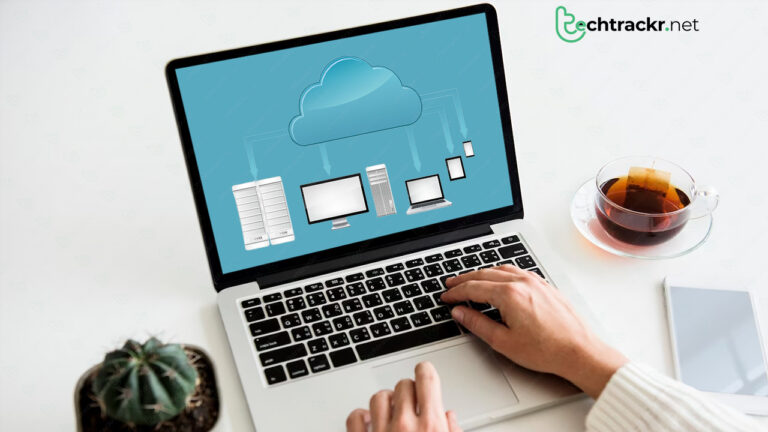
Crafting a strategy to safeguard your data is a pivotal step in fortifying it against potential cyber threats. In the face of a malware or ransomware assault, having a saved backup allows you to reboot and restore your data to its former state. Various organizations may opt for cloud-based alternatives like Google Drive or Dropbox, while others lean towards the security of external hard drives for their backups. Yet, to guarantee comprehensive data security, your backup approach should encompass a diverse array of solutions.
Embracing the 3-2-1 rule stands out as a stellar backup strategy. Picture this: crafting three unique copies of your data, distributing them across two distinct storage types, and stashing away one copy offsite. This approach assembles a fail-safe system that ensures the security of your data. For an added layer of protection, consider maintaining more than one offsite copy, elevating the level of safety even further.
Unlocking the 3-2-1 backup rule can be approached in numerous ways. By blending various strategies from the following options, you can commence crafting a reliable and secure method to ward off the threat of data loss.
Also Read: How to speed up your Windows PC with these simple hacks
Get an external hard drive
In the realm of external drives, you face a choice between two options: HDDs (hard disk drives) and SSDs (solid-state drives). HDDs fall under the umbrella of legacy technology, denoting their older vintage and affordability compared to SSDs. While SSDs boast rapid copy speeds and enhanced portability, making them the superior choice, the trade-off comes in the form of a higher price tag.
In your quest for an external hard drive, ensure compatibility with your computer and ample storage space for a comprehensive operating system backup. Opt for a dedicated drive solely designated for data backups and reserve a separate drive for your day-to-day computing needs.

Buy a USB flash drive
USB flash drives emerge as excellent on-the-go storage companions, ideal for housing the utmost critical files from your computer. Given their typically smaller size compared to external hard drives, it could prove more efficient to reserve them for storing only the most pivotal files or documents, foregoing the need for an exhaustive system backup.
Harness the power of optical media solutions, such as CDs or DVDs, to duplicate your data. Dive into a realm of diverse burner solutions that empower you to copy and craft an image of your files and essential documents.
Diversify your approach to securing sensitive data by utilizing an optical disk through services like Mozy or Carbonite. These innovative platforms enable you to store your data in the cloud and seamlessly retrieve it onto an optical disk. Optical media emerges as a compelling option, especially for those constrained by limited physical storage space.
Switch to cloud storage
Embark on the realm of cloud storage, a stellar avenue for crafting backups in the digital domain. This service gracefully accommodates files, photos, or any data of your choosing. Whether employed as the primary guardian or a secondary protector, cloud storage services furnish a designated space on their servers in exchange for a monthly fee. This space becomes the canvas for stowing away your backups. Notably, most providers throw in encryption services, ensuring the fortification of your data while it resides in the cloud.
Unlocking your cloud backup is a breeze, accessible from any computer or mobile device with an internet connection. Cloud storage simplifies the process of restoring your data in case of mishaps with your computer or phone. Navigate the cloud storage landscape through providers like Google Drive, iCloud, Dropbox, Backblaze, iDrive, and Microsoft OneDrive.
Also Read: How to build a gaming PC: Simple tips and tricks

Make use of online backup services
Safeguarding your data through an online backup service involves encrypting your files, establishing routine backup schedules, and securely storing the backup files. Online backup services stand as a formidable approach to shield your data against the uncertainties of a computer crash or theft.
These services come equipped with security enhancements such as file encryption and password protection. This enables you to set up regular backups, encompassing both full and incremental backups, alleviating concerns about data loss. Moreover, the majority of online backup services extend the option to store your backup files in a secure location, providing peace of mind that your data remains safe and shielded.
Buy a Network Attached Storage (NAS)
For those genuinely committed to safeguarding their data, consider the investment in a Network Attached Storage (NAS) device. NAS operates as a dedicated server, offering file-level storage and sharing for your home or small business network. Diverging from the conventional approach of plugging an external hard drive into your router, a NAS is meticulously designed to be consistently on and connected. This ensures unfettered access to your data at any time, from any location.
Delving into the realm of Network Attached Storage (NAS) unveils numerous advantages, with reliability and security standing out as paramount. Within the confines of a NAS, your data finds its sanctuary on a dedicated server, shielded from the same perils faced by PCs or laptops. Picture this scenario: if your computer succumbs to a crash or malware infection, your data remains secure within the confines of the NAS. Furthermore, NAS devices are fortified with an array of security features, including password protection and encryption, serving as guardians against prying eyes and fortifying the safety of your data.
